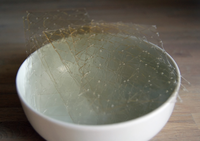
Photo from wikipedia
Abstract Psychrotrophs or psychrophiles are extremophilic microorganisms that have the maximum temperature above 20 °C for growth. Since around 70% of the earth’s biosphere temperature is below 5 °C, psychrotrophs… Click to show full abstract
Abstract Psychrotrophs or psychrophiles are extremophilic microorganisms that have the maximum temperature above 20 °C for growth. Since around 70% of the earth’s biosphere temperature is below 5 °C, psychrotrophs could be found in diversity of species. These bacteria are source of enzymes, mainly including proteases used in different food industries where main reactions should be proceeded in low temperatures to save the aroma and flavor of food materials and bioactivity of valuable food ingredients such as bioactive peptides. Proteases are among the major groups of industrial enzymes accounting for 60% of the total global trade of enzymes. In this review, at first, we describe the biology, classification and physiological functions of different proteases obtained from psychrotrophic bacteria. Then, we present the various methods to produce and purify these enzymes from the bacteria. Moreover, we discuss several applications of the proteases to produce bioactive peptides from versatile protein sources. A comprehensive introduction to different types of proteases and their production and purification methods could help researchers identify novel proteases with improved properties, considering that their total market is significantly growing every year.
Journal Title: Biocatalysis and agricultural biotechnology
Year Published: 2021
Link to full text (if available)
Share on Social Media: Sign Up to like & get
recommendations!